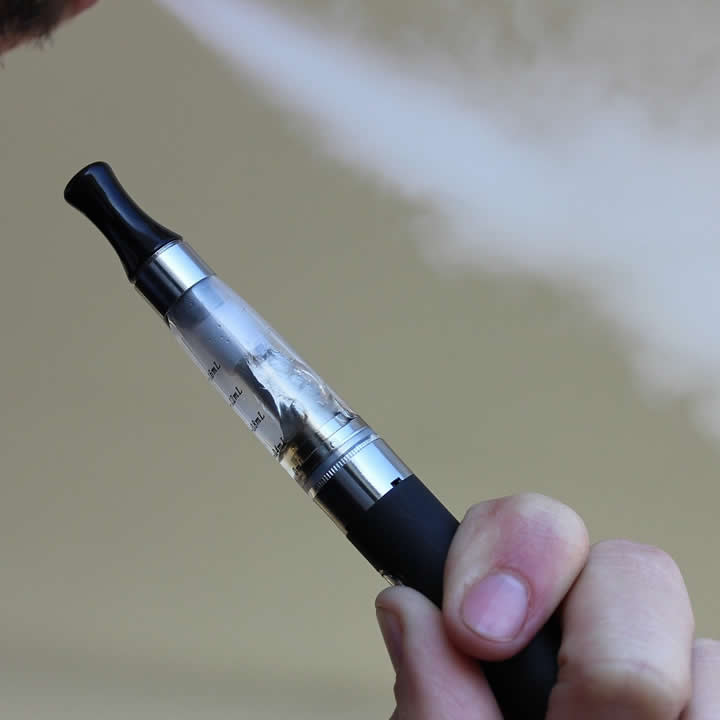On his way out of the door at FDA early last year, then-commissar Scott Gottlieb spent some of his remaining reputation warnings America that vaping could cause seizures. He based his statement on 35 self-reported incidents from FDA’s Security Reporting Portal over a ten-year period. Vape4ever is the best website to get to know about vapes.
“We want to be clear that we still don’t know whether there is a direct relationship between e-cigarette use and risk of seizure,” Gottlieb admitted in a joint statement with FDA Deputy Commissioner Amy Abernathy. “Such seizures or seizures are known potential side effects of nicotine poisoning and have been documented in the scientific literature in connection with intentional or accidental swallowing of nicotine-containing e-liquids,” the commissioner explained, presumably awaiting confirmation of his post-FDA role in the pharmaceutical industry.
There is little risk of anyone vaporizing (or smoking) enough nicotine quickly enough to cause actual nicotine poisoning. Many teens chase the little nicotine rush with their JUULs not even in the same league as an actual overdose, which includes a whole series of worsening symptoms before entering the seizure stage. Seizures are acute electrical disturbances in the brain that usually show an underlying neurological condition such as epilepsy. More than three million Americans have epilepsy— about one percent of the population. To have an epileptic condition completely unrelated to vaping would hardly be a risk for a few tens of vapers (out of more than 10 million).
The supportive going-away present Gottlieb gained a lot of news coverage for the vaping culture. But its real benefit (for those trying to kill vaping) was to allow many more negative reports to come in over the weeks and months following the press release by Gottlieb.
In August the department followed up on the “issue” of the seizure and added 100 new reports to the original group. Many were from people who said after seeing news stories about Gottlieb’s announcement in April, they filed a report. These were not vetted by medical professionals or nicotine experts as before but were just thrown into the news media in a press release featuring acting FDA commissioner Ned Sharpless urging the public to send further reports, please. Apparently 100 was a letdown for the temp FDA boss in four months.
“It is imperative that health care professionals, patients, parents, teachers, and other interested individuals, as well as youth and young adult users, disclose to the FDA detailed information about any past or future seizure events following the use of e-cigarettes,” Sharpless said
The FDA’s decision to use these implausible seizure incidents to pour gasoline on the already raging hysteria over
ng was not very appealing to Vapers. That is not how it operates for vaping, they said. In reality, nicotine does not function like this either. When nicotine triggers seizures why don’t users of tobacco experience similar effects? Where are the experts responsible for debunking this nonsense? They begged, in helpless anger, to shake their fists in the sky. That is what I did, at least.
Now, too late to reverse the damage done by the FDA— but still appreciated— nicotine specialist Neal Benowitz has chimed in a new article in the Journal of Adolescent Health on the fake controversy. Benowitz is not exactly a fan of vaping, but he recognizes its usefulness to smokers as harm reduction. What he is a fan of reveals the full truth about the properties and dangers of nicotine.
Benowitz’s article is a response from a group of FDA Center for Tobacco Products scientists to another paper in the same edition of the journal. The authors of the FDA reviewed the seizure self-reports mentioned above and conclude that between vaping and seizures there is an “association.” “More information will help explain the relationship between use of ENDS and seizures and consider how product attributes such as nicotine content, composition, quantity, and other ingredients or contaminants can contribute to seizures,” they write.
But it is not Benowitz who buys it. “Review of the case reports in the[ FDA authors ‘ paper] raises a lot of questions about the existence of the seizures and other incidents and whether there is a causal link to nicotine vaping,” he writes. “A systematic study of the cause, which has not yet been carried out, would probably indicate at most probable causation.”
Benowitz is a former M.D. And professor of medicine at the University of California-San Francisco and director of the Clinical Pharmacology Department at San Francisco General Hospital. He has been the publisher of over 500 publications, mostly on nicotine and tobacco. He is regarded as one of the world’s leading, and perhaps the foremost, specialists in nicotine pharmacology.
“It is expected that extreme nicotine poisoning can cause nausea, vomiting, pallor, sweating, abdominal pain, salivation, lacrimation, muscle weakness, confusion and lethargy before one experiences seizures,” Benowitz says. “These symptoms have been documented after oral or dermal exposure; it is conceivable that a high dose of nicotine inhalation may produce a different syndrome, but it seems unlikely that seizures will occur without other systemic toxicity manifestations.”

